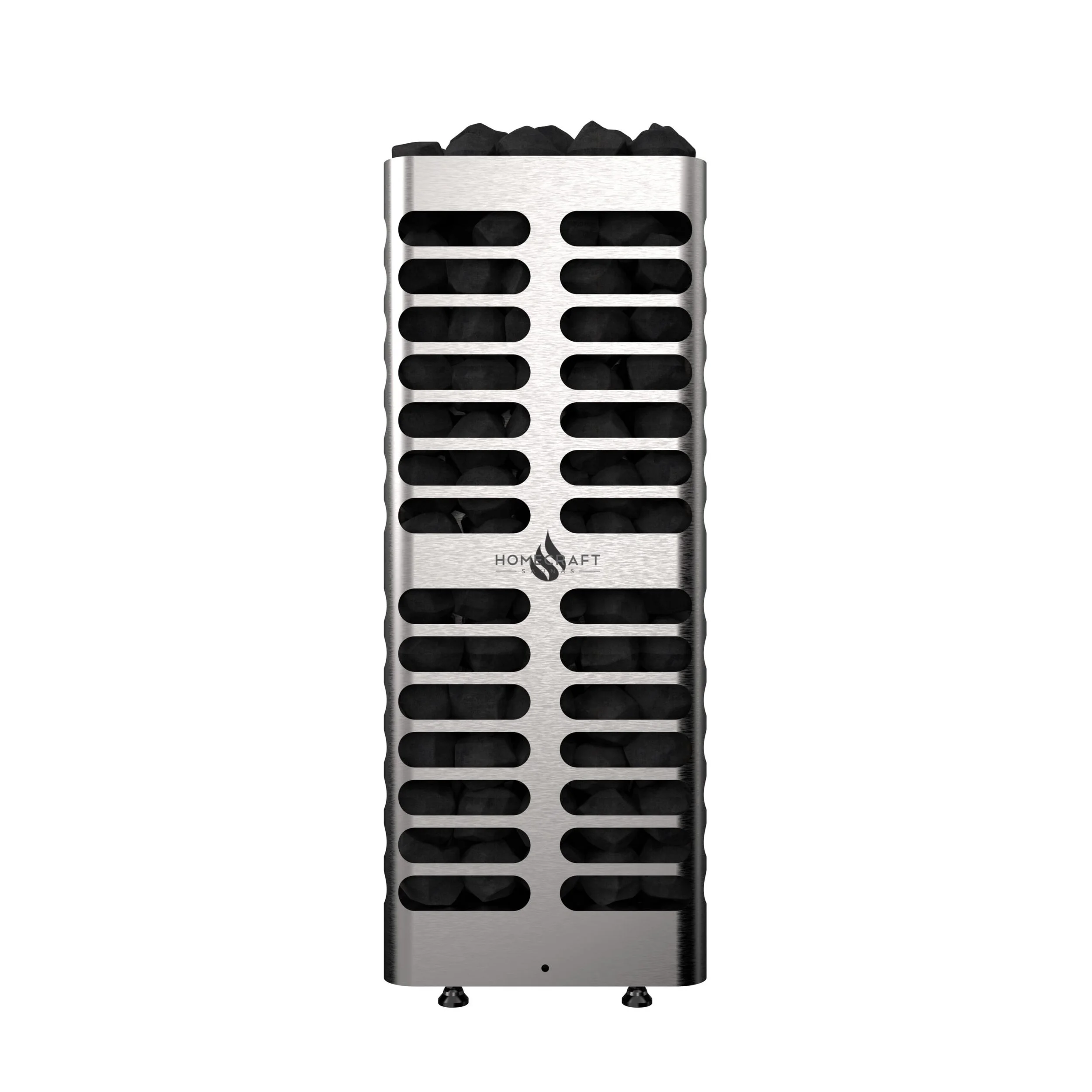When it comes to creating the perfect sauna experience, selecting your heater can sometimes be a challenging decision. Typically, your two options are wood-burning and electric heaters, each offering its own unique benefits and drawbacks. Here's a breakdown to help you decide which fits your sauna dreams best.
Wood-Burning Heaters
Pros:
Authentic Experience: Wood-burning heaters offer a traditional sauna experience. The crackling fire and the scent of burning wood enhance the ambiance, making it feel more natural and rustic. Plus, all our wood-burning heaters come with a window in the door, providing the perfect lighting and a mesmerizing view of the fire.
Off-Grid Capability: These heaters are ideal for locations without reliable electricity or where running a cable might be challenging.
Cost-Effective Fuel: If you already burn firewood or have access to wood on your property, wood-burning heaters can be more economical compared to the ongoing costs of electricity.
Faster Heat-Up Time: With a well-built fire using dry firewood, a wood-burning heater can heat up quicker than electric heaters. For smaller saunas, this can be as quick as around 30 minutes, and they can often get hotter, although electric heaters usually reach a temperature that's comfortable for most people.
Less to Go Wrong: Electric heaters occasionally have a heating element fail and need replacement. In contrast, there's very little that can go wrong with a wood-burning heater.
Cons:
Maintenance and Cleaning: Regular cleaning is required to remove ash and soot, and they also need an occasional chimney sweep. This maintenance is essential to ensure safety and efficiency.
More Effort: Building a fire is necessary before use, which might not be ideal for everyone. For smaller saunas, a good fire usually doesn't need restoking before reaching the desired temperature, but larger saunas might require at least one restoking.
Electric Heaters
Pros:
Convenience: Electric heaters are incredibly user-friendly. With the flip of a switch or the push of a button, your sauna starts heating up, no fire-starting skills required. Some heaters even offer Wi-Fi control options, so you can turn on your sauna from your phone!
Consistent Temperature Control: They provide more accurate temperature control, allowing you to maintain your desired sauna climate effortlessly.
Cons:
Dependent on Electricity: Not ideal if you're in an area with unreliable power, your electrical panel is full, or running a wire to the sauna is challenging.
Higher Operating Costs: While the cost per sauna session is typically only $1-2, depending on your local electricity rates, frequent use can add to your energy bills.
Less Traditional Feel: Electric heaters might lack the traditional sauna ambiance that comes with a wood-burning heater, such as the natural sounds, scents, and the glow of the fire.
Making Your Choice
When deciding between a wood-burning and an electric heater for your sauna, consider your priorities. Are you seeking that authentic sauna experience and have access to cheap wood, or do you value convenience and consistency more? Reflect on your sauna's location, your budget for the initial setup and ongoing costs, and how much effort you're willing to invest. Some people relish the ritual of making a fire, while others prefer the simplicity of turning it on from their phone.
Whichever option you choose, both wood-burning and electric heaters can provide the warmth and relaxation that make saunas a cherished retreat in homes and cabins alike. Remember, the best choice is the one that aligns with your lifestyle, preferences, and the unique character of your sauna space.





